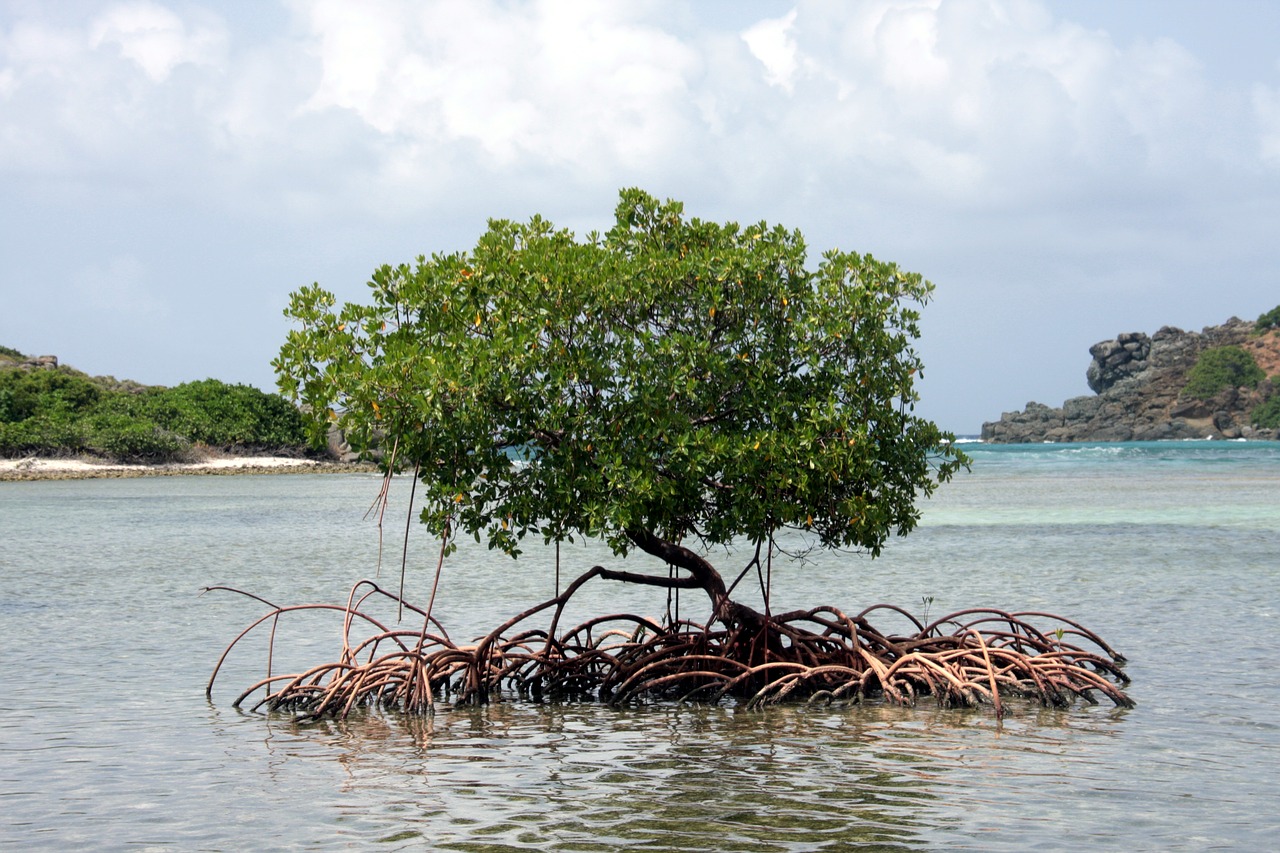The Greater Caribbean region, which encompasses the Gulf of Mexico, the Caribbean Sea, and the Large Marine Ecosystems of the Northern Brazilian Shelf, is home to 26% of the world’s mangroves. Therefore, the urgency of protecting these fragile ecosystems is undeniable. Between 1980 and 2010, 7,000 km² of mangroves were lost in the region at a rate of 230 km² per year. If this rate continues, mangroves could disappear completely from the Caribbean within 60 years.
Mangrove forests are essential for climate resilience—sequestering carbon, reducing flood risks, and safeguarding water quality for coastal communities. In the Caribbean, they form a crucial buffer for communities increasingly vulnerable to extreme weather events intensified by the climate crisis. Beyond protection, these ecosystems underpin food security and the economic livelihoods of millions worldwide, acting as natural nurseries for almost 800 billion fish, prawns, bivalves, and crabs each year.
With less than 100 days until COP30 in Belém, Brazil, the urgency of accelerating collective action and delivering concrete results has never been so evident. As Global Ambassador for the Mangrove Breakthrough, I am dedicated to our bold goal: mobilizing $4 billion to protect and restore 15 million hectares of mangroves globally by 2030. More than half of the 40 national and subnational governments that have endorsed the initiative are from Latin America and the Caribbean, including Jamaica, the Dominican Republic, Cuba, Mexico, and Brazil, which holds the COP30 presidency.
Mangroves provide critical support for coastal communities on the frontlines of the climate crisis. In a region highly vulnerable to hurricanes and other extreme weather events, mangroves serve as vital natural barriers, shielding communities from flooding and high winds during storms and slowing erosion. They can also reduce wave heights by up to 66%, providing critical support for coastal areas as sea levels rise.
Protecting and restoring mangroves is not only essential for their own survival but also for the health of coral reefs and seagrass beds, which are functionally linked and equally vital to the region. The Caribbean hosts 10% of the world’s coral reefs, and the current pace of mangrove deforestation risks devastating the “functioning, fisheries, biodiversity, and resilience” of coral reefs.
Further degradation of these interconnected ecosystems could deal a devastating blow to the livelihoods that depend on them. Mangrove fish populations, which many coastal communities rely on, have been decreasing over time. A 2020 study by the National Centers for Coastal Ocean Science found that biodiversity in a mangrove bay in the U.S. Virgin Islands had declined by 30–50% compared to just a few decades earlier.
Mangrove tourism also provides significant economic opportunities in the Caribbean, a region where tourism accounts for nearly 31% of its GDP. Globally, mangrove tourism brings in billions of dollars of revenue and tens of millions of tourists each year.
Mangrove ecosystems are critical carbon sinks, with an ability to store up to four times as much carbon dioxide as terrestrial forests. This superpower makes them critical allies for Caribbean nations looking to meet their domestic and international climate targets. These nations that aim to be ambitious climate leaders should put mangroves front and center in their environmental policies.
While the Greater Caribbean’s mangrove ecosystems have suffered significant declines in recent decades, the coming years offer a critical opportunity to lay the groundwork for a more resilient future. We have a clear path forward—through initiatives like the Mangrove Breakthrough and with the growing political will of many nations—to protect and restore these vital forests. Governments in the region and around the world have endorsed our initiative, as have dozens of financial institutions, NGOs, and research organizations.
To secure the future of Caribbean nations, we must act decisively to protect the mangrove forests that remain and restore those we have already lost. Failure is not an option. By working with organizations like the Association of Caribbean States to rally regional cooperation, we can embrace nature-based solutions that safeguard mangroves and the ecosystems they support. In doing so, we lay the foundations for true resilience—ensuring a safer, more sustainable future for generations to come.












